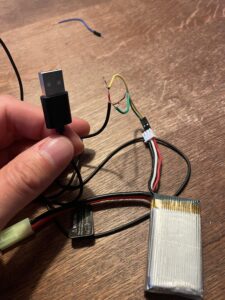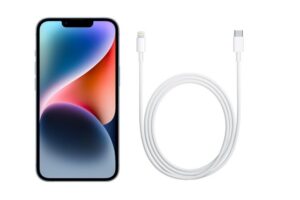Looking for an easy solution on how to dispose of hearing aid batteries? You’re in the right place! Properly disposing of hearing aid batteries is essential for both the environment and your own safety. In this article, we will provide you with a simple guide on how to dispose of hearing aid batteries responsibly. So, if you’re ready to learn the best practices for safely getting rid of your old batteries, keep reading!
How To Dispose Of Hearing Aid Batteries
Introduction
Hearing aids have become an essential tool for many individuals with hearing loss, helping them communicate and experience the world around them more effectively. These small devices rely on batteries to power their advanced technology. However, like all batteries, hearing aid batteries eventually need to be replaced and safely disposed of. In this article, we will explore the various methods of how to dispose of hearing aid batteries responsibly and environmentally friendly.
Why Is Proper Disposal Important?
Proper disposal of hearing aid batteries is crucial for several reasons:
1. Environmental Protection: Hearing aid batteries contain harmful chemicals such as mercury, zinc, and nickel that can pollute the environment if not disposed of correctly. These chemicals can leach into the soil and water, posing a risk to plants, animals, and even humans.
2. Health and Safety: Incorrect disposal methods can lead to the release of toxic chemicals, causing harm to sanitation workers and landfill employees. It’s essential to protect the well-being of those involved in the waste management process.
3. Compliance with Regulations: Some regions have specific regulations regarding battery disposal. By adhering to these guidelines, you ensure compliance with local laws and contribute to creating a safer and cleaner community.
How to Dispose of Hearing Aid Batteries Responsibly
1. Check Local Regulations
Before disposing of hearing aid batteries, it’s essential to check your local regulations regarding battery disposal. Laws and guidelines may vary depending on where you live. Some areas provide specific collection points or recycling programs for batteries.
- Contact your local waste management facility or municipality to inquire about battery disposal regulations.
- Ask if they have designated drop-off points or collection programs for hearing aid batteries.
- Ensure you understand the specific instructions provided by your local authorities.
2. Contact Your Hearing Care Provider
Hearing care providers are knowledgeable about hearing aid batteries and can offer guidance on proper disposal methods. They may have information on recycling programs or collection points specifically designed for hearing aid batteries. Be sure to reach out to them for advice.
3. Recycle with Battery Recycling Programs
Recycling is one of the most environmentally friendly ways to dispose of hearing aid batteries. Many communities and organizations offer specialized battery recycling programs. Here’s how you can take advantage of these programs:
- Research battery recycling programs in your area. Local recycling centers or waste management facilities may provide battery recycling services.
- Find out if these programs accept hearing aid batteries specifically, as some may only focus on traditional household batteries.
- Follow the instructions provided by the recycling program for safe packaging and drop-off.
4. Explore Retailer Options
Some retailers or manufacturers of hearing aids offer battery recycling options. These programs are often convenient and designed to ensure the proper disposal of hearing aid batteries. Consider the following steps:
- Contact your hearing aid manufacturer or retailer to inquire about their battery disposal programs.
- Ask if they provide collection boxes at their stores where you can drop off used batteries.
- Understand the requirements and guidelines for participating in these programs.
5. Mail-Back Programs
Mail-back programs are another viable option for disposing of hearing aid batteries properly. These programs allow you to mail your used batteries to a recycling facility. Here’s how to utilize mail-back programs:
- Research mail-back programs available in your area or online.
- Request a pre-labeled mail-back kit, which typically includes a container for the batteries.
- Follow the instructions provided, seal the container, and ship it to the designated facility.
6. Proper Storage Before Disposal
While you are waiting to dispose of your hearing aid batteries, it’s important to store them safely to minimize any potential risks. Follow these guidelines for proper storage:
- Place used batteries in a designated battery storage container to prevent them from contacting other objects or discharging accidentally.
- Avoid storing batteries in extreme temperatures or environments that could compromise their integrity.
- Keep the storage container out of reach of children and pets.
7. Safely Discard Damaged Batteries
If you encounter damaged or leaking batteries, it’s crucial to handle them with care due to the potential risks they pose. Follow these steps to safely discard damaged batteries:
- Wear protective gloves to avoid direct contact with the leaking battery contents.
- Place the damaged battery in a plastic bag or container for containment.
- Contact your local hazardous waste management facility for guidance on proper disposal methods for damaged batteries.
As responsible users of hearing aids, it is our duty to properly dispose of hearing aid batteries. By following the guidelines outlined in this article, you can ensure the safe and environmentally friendly disposal of these batteries. Remember to check local regulations, explore battery recycling programs, and contact your hearing care provider or retailer for more information. Together, we can contribute to a cleaner and safer environment while enjoying the benefits of hearing aids.
Frequently Asked Questions (FAQs)
Now, let’s address some common questions related to the disposal of hearing aid batteries:
Q1. Can I throw hearing aid batteries in the regular trash?
A1. No, hearing aid batteries should not be thrown in regular trash as they contain toxic chemicals that can harm the environment. Proper disposal methods, such as recycling or following local regulations, should be followed.
Q2. Are there any safety hazards associated with mishandling or improper disposal of hearing aid batteries?
A2. Yes, mishandling or improper disposal of hearing aid batteries can lead to safety hazards. It can cause chemical leakage, risking harm to individuals handling the waste and potentially polluting the environment.
Q3. How can I identify recyclable hearing aid batteries?
A3. Most hearing aid batteries are recyclable. You can identify them by the recycling symbol (three chasing arrows) found on the battery packaging or the battery itself.
Q4. Are all hearing aid batteries compatible with retailer or mail-back programs?
A4. It’s important to check with the retailer or mail-back program to ensure they accept the specific type of hearing aid batteries you use. They may have guidelines or limitations based on the battery size or chemistry.
Q5. Can I recharge or reuse hearing aid batteries?
A5. Most hearing aid batteries are not designed to be rechargeable or reusable. Rechargeable hearing aid batteries require a specific type of hearing aid that supports rechargeable batteries. Always follow the manufacturer’s recommendations for battery usage and disposal.
Remember, always prioritize the safe disposal of hearing aid batteries to protect both the environment and the well-being of those involved in the waste management process. Seeking guidance from local authorities, hearing care providers, and battery recycling programs can help ensure you dispose of these batteries responsibly.
Frequently Asked Questions
How do I dispose of hearing aid batteries?
To dispose of hearing aid batteries safely, you should follow these steps:
Can I throw hearing aid batteries in the trash?
No, you should not throw hearing aid batteries in the regular trash. They contain hazardous materials that can harm the environment if not disposed of properly.
Where can I recycle hearing aid batteries?
You can recycle hearing aid batteries at designated recycling centers or drop-off locations. Many electronic stores and hearing aid clinics also offer battery recycling services.
Are there any special requirements for recycling hearing aid batteries?
Some recycling centers may have specific requirements for accepting hearing aid batteries. It’s best to check with your local recycling facility to ensure you meet any necessary guidelines.
Can I recycle hearing aid batteries with other household batteries?
It’s generally recommended to separate hearing aid batteries from other household batteries when recycling. This ensures proper handling and prevents potential contamination or damage to the other batteries.
What should I do if there are no recycling options available in my area?
If you don’t have access to a battery recycling facility or drop-off location, you can contact your local waste management authority for guidance on how to properly dispose of hearing aid batteries in your area.
Final Thoughts
In conclusion, properly disposing of hearing aid batteries is crucial for both the environment and our own safety. By following a few simple steps, we can ensure that these batteries are disposed of correctly. One option is to recycle them through specialized programs or drop-off locations. Another is to utilize battery recycling services offered by manufacturers or retailers. It is important to never dispose of the batteries in regular trash bins as they can pose a risk to the environment. By taking the time to responsibly dispose of hearing aid batteries, we can protect our planet and contribute to a greener future. So, when it comes to how to dispose of hearing aid batteries, let’s remember to be mindful and do our part in keeping the environment clean and safe.



